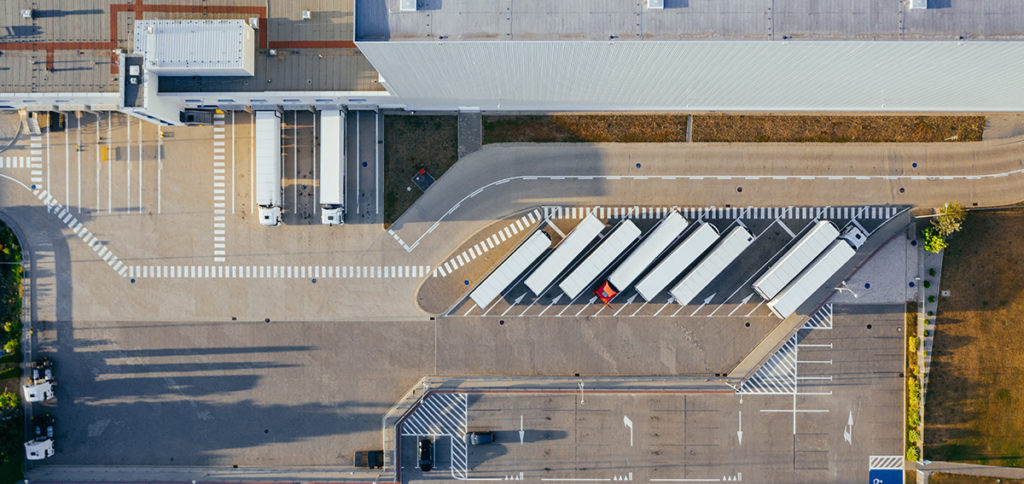Yard management: the modern way of keeping organized company premises

The “good old days” – they are definitely a thing of the past. Everyone has to decide for themselves whether the past was good and what was good about it. As far as transportation logistics are concerned, you can conclude, after a little reflection, that everything was actually so much simpler in the past. However, the current buzzword, “yard management”, enables factors like time resources, quality and security to be enhanced within the supply chain – and ultimately keep costs at optimal levels.
For example, when statutory tariffs were levied on the transportation of goods, this resulted in a decline in the number of trucks on the roads, significantly fewer vehicles from abroad on the highways, and less tonnage being moved (just-in-time was in its infancy). Shipments were consistently larger and, above all, there was less time and cost pressure. Nowadays, a variety of factors such as the Internet and its communication opportunities, increasing quality requirements, constantly higher customer expectations, and shorter product lifecycles are making logistics processes incredibly complex and subject to enormous pressures.
Overcoming bottlenecks
Naturally, the characteristics of transportation routes and the distances to be covered are the most important factors influencing efficient logistics processes. However, there are other bottlenecks, and, all too frequently, they are found on a company’s own doorstep or rather on its own premises.
A detailed strategy is the only method of managing the complex procedures involved in delivering products to and collecting them from a production facility. The technical term for this is “yard management” – a concept that is not really new at all. Businesses constantly have to adapt to different factors. Yard management means nothing other than ensuring time resources, quality and security within the supply chain – and therefore, keeping costs at an optimal level.

Good yard management delivers lower costs
Yard management ensures reduced capital lockup costs, as only deliveries that have been ordered are accepted. Freight costs are reduced via rapid loading and unloading, meaning that trucks do not have to wait unnecessarily for long periods which, in turn, run up costs. This also increases security, as the movement of people on the company’s premises is limited and documented. Another important point is that transparency and tidiness at a company’s premises are improved. Germering-based logistics consultant Christian Schober has seen firsthand how companies increasingly lose track of items the more trucks and drivers are simultaneously located on their premises. Damage caused by trucks maneuvering, mix-ups or loss of goods, returns or pallets can be significantly reduced via applying controlled procedures.
The whole thing should definitely be an automated process. Automation not only increases security and reduces costs, but it also has an ancillary effect of providing people with a control center, documented fleet and warehousing responsibility with more transparency and starting points for process improvement.
Another side effect is that data relating to incidents on company premises can be used, for example, for liability disputes and for quality control purposes. Lastly, truck drivers also benefit from structured processes and they waste less time when their trucks are being loaded and unloaded.
Yard management is about managing all activities on a company’s premises. Furthermore, yard management gathers and analyzes all the information about vehicles located on a company’s premises.
Yard management at drinktec 2021
Yard management will also be a theme at the next drinktec from September 13 to 17, 2021 in Munich. As a leading global trade fair, this event is traditionally dedicated to addressing the pressing problems of its professional visitors. Scores of exhibitors will not only be showcasing the latest production and automation technologies, but they will also embrace the issue of “logistics,” which is just as important to food and beverage producers.
